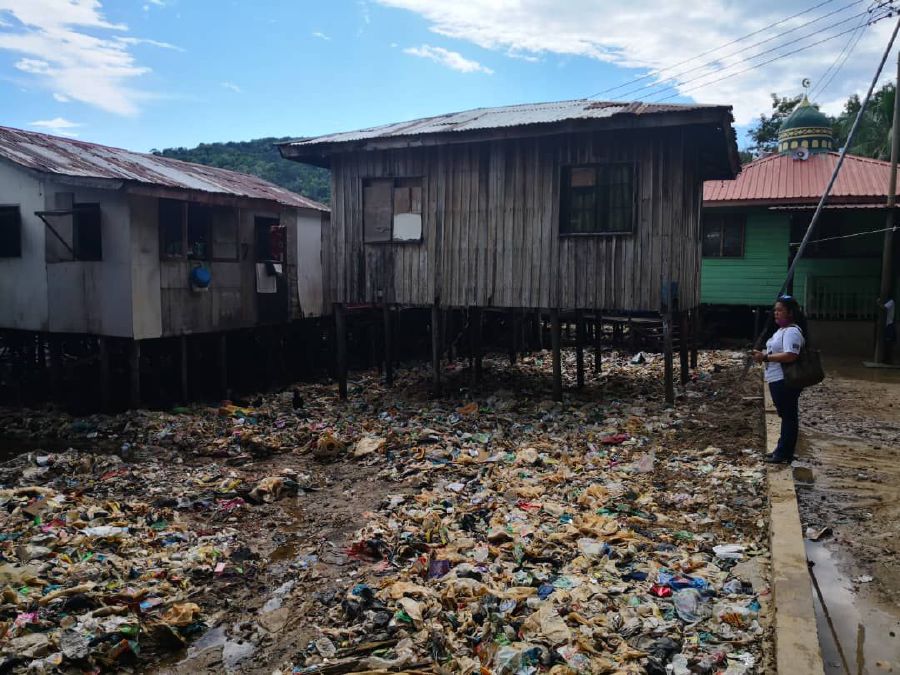By Olivia Miwil - December 12, 2020 @ 5:26pm
KOTA KINABALU: The Gaya island community has been trying very hard to manage the waste that is trapped underneath the water village and around its waters.
Contrary to common assumption by outsiders, who always pinpoint the villagers for being the cause of the piles of rubbish found at sea, these residents are actually struggling to find ways to solve it.
Village chief Hanafiah Abdul Hassim said there were two reasons the rubbish has been piling up through the years.
He admitted that the first reason was that the tonnes of rubbish came from the community, but the other reason is that rubbish arrived at their 'doorstep' as they were set adrift from other parts of the island and elsewhere.
"There are four resorts on this island. The reasons that their beaches are clean are due to daily waste collection, which is transported to the mainland (a 20-minute boat ride away).
"But for us, without any proper waste management disposal, our solutions are just to place them at a spot at the same island," he said, adding that local authorities such as the Kota Kinabalu City Hall (DBKK) and police have been helping to solve the issues through several programmes.
Hanafiah was speaking during the "Together We Eradicate Trash" web seminar hosted by Blu Hope, an NGO.
Apart from the gotong royong, he said the residents have buried waste and set up nets to trap rubbish from going into the village.
However, when there are storms or strong currents, the area will be flooded with tonnes of rubbish again.
Blu Hope co-founder Monica Chin said the public should not label the people of Gaya island negatively if it seems the residents look comfortable living in such a condition.
She said the trash comes from everyone.
Next year, she said a pilot project that goes beyond the usual 'gotong-royong' is expected to be carried out at the Gaya island village.
She said the project is expected to take Sabah to the next level in terms of waste management approaches.
"The traditional 'gotong-royong' method to clean a place does not work, it is not sustainable in the long term. We should not ask our future generations to pick up other people's trash.
"The pilot project, which is fully supported by DBKK and tourism ministry, with collaboration with other non-governmental organisations and operators, is aiming to create behaviour and mindset changes apart from providing a circular economy to sustain the community financially," she said.
Chin added that the eradication of waste also requires commitment from manufacturers to provide affordable biodegradable packaging. At the same time, she said consumers have to be wary of their lifestyles by omitting unnecessary 'conveniences'such as single-use plastics.

Comments
Post a Comment